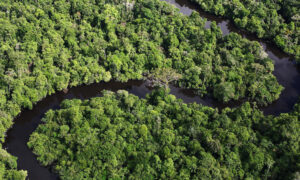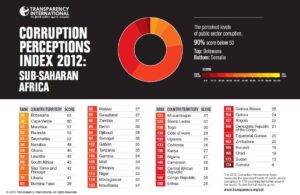
Many states can grow and progress towards UN sustainable development goals from international aid, but some crumble. When listening to the podcasts, the ones about Brazil and Senegal caught my attention. They are perfect examples of countries that can thrive from international involvement, and how some dig themselves into a deeper hole. Brazil has made some questionable choices when it comes to the welfare of the rainforest. They talked about in the podcast how their mismanagement has caused around 17% of the rainforest has be lost, with more than 75% being susceptible to fires and less likely to recover. They also talked about that due, to the amount of greenhouse gases released it has caused a prediction of a .023 degree increase in climate change. These environmental disasters brought Brazil farther from achieving SDG 16. They said that the damage to the rainforest was caused by gold mining and agriculture, funded by powerful investors such as Black Rock, Vanguard, and Bank of America. All of which put Brazil at risk of losing 10% of its GDP, and even with this they still continue to push for more deforestation development. In response they said, organizations such as RDD+, were created to help with the Amazon deforestation. They helped to supply grants and create new economic plans and strategies that are forest and governmental-friendly, along with monitoring all damage. There is also the Amazon fund that was created to help aid projects to help maintain and rebuild the rainforest, and BJF which buys land to create safe zones. All of these have been seeing an upward trend in Brazil’s compliance and support. They have been able to make a positive stride towards SDG 16 through the use of international aid despite being opposed at first.

In contrast, you have countries like Senegal who are not taking too well to international aid. Senegal has also been going through serious issues with trying to achieve SDGS 16, 4, and even 3. The podcast mentioned that Senegal suffers from major corruption that has spread to every sector of their government. As a result of the corruption, as stated within the podcast, there has been a constant misuse of government funds from previous presidents using them to buy statues or missing COVID aid which totaled around 30 million euros. The mismanagement of money has caused major poverty within the state with no money to strengthen education, medical care, or combat poverty. In fact, they stated, that schools with students are overcrowded, have poor infrastructure, and some schools lack the finances for educational materials. Even the countries attempting to clear up some of these problems by taking loans from the IMF backfire because of the corruption leading the country into more debt.
I do want to acknowledge that Brazil’s issue was more publicized compared to Senegal’s. Brazil’s issues would be considered a global problem not internal. This has caused a lot more aid, attention, and action to be taken, giving Brazil a better chance to turn things around. I do also see though that the Brazilian government is pushing for change unlike the Senegal government (as of what was in the podcast). Within Senegal just see a constant mismanagement of money, displacement of people, and overall decline. It could also be that financial aid is not what Senegal needs but a governmental change. However, that is hard to achieve without completely overstepping the state’s sovereignty.